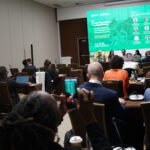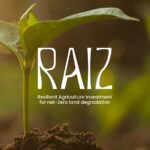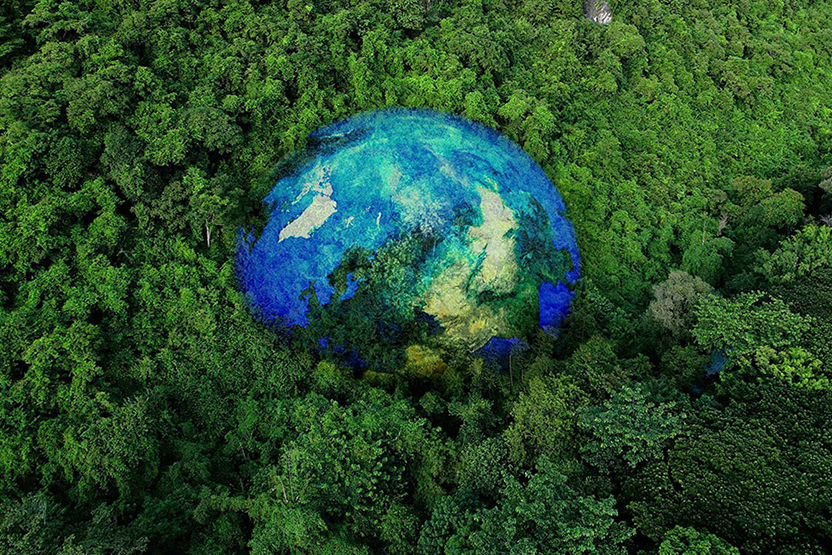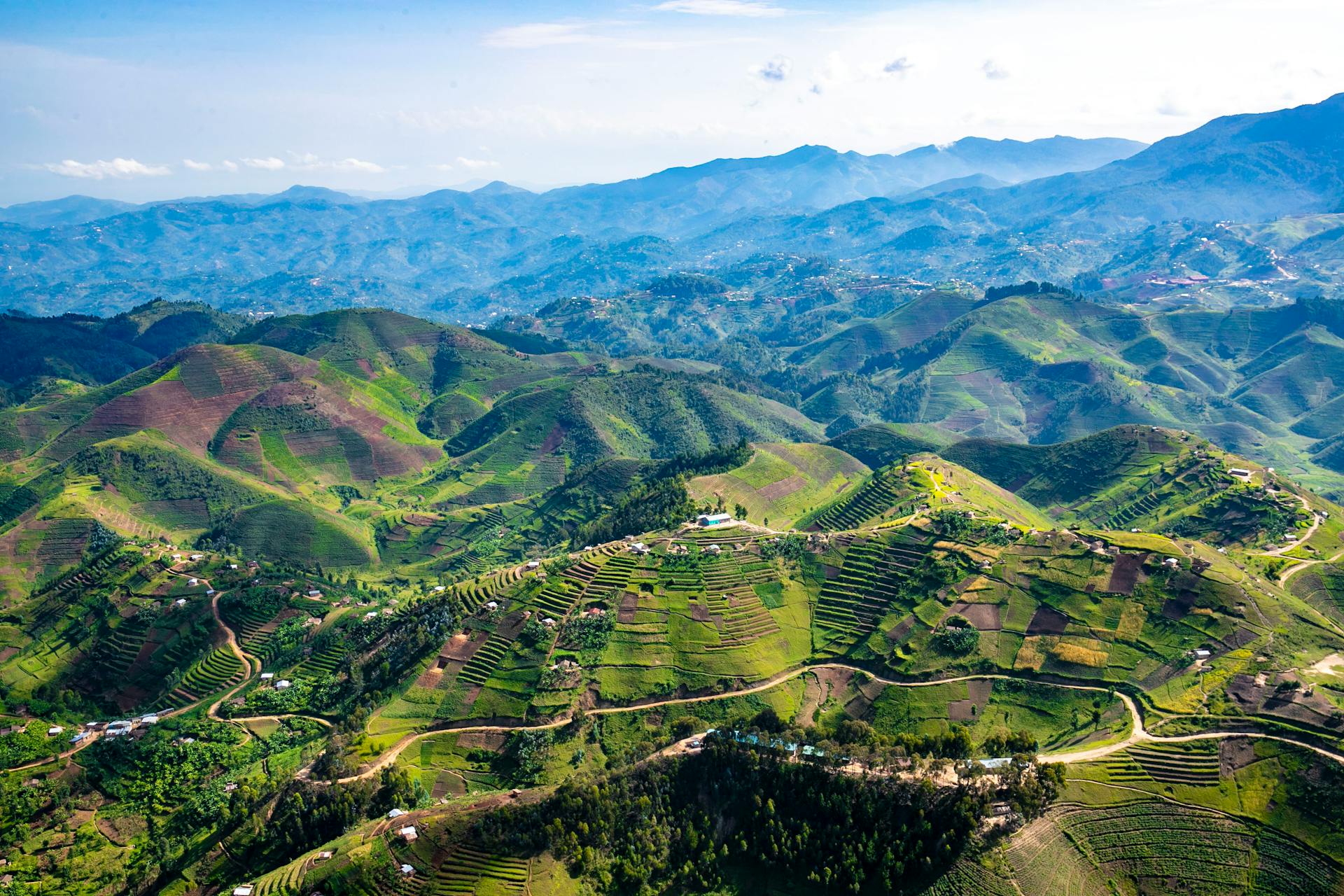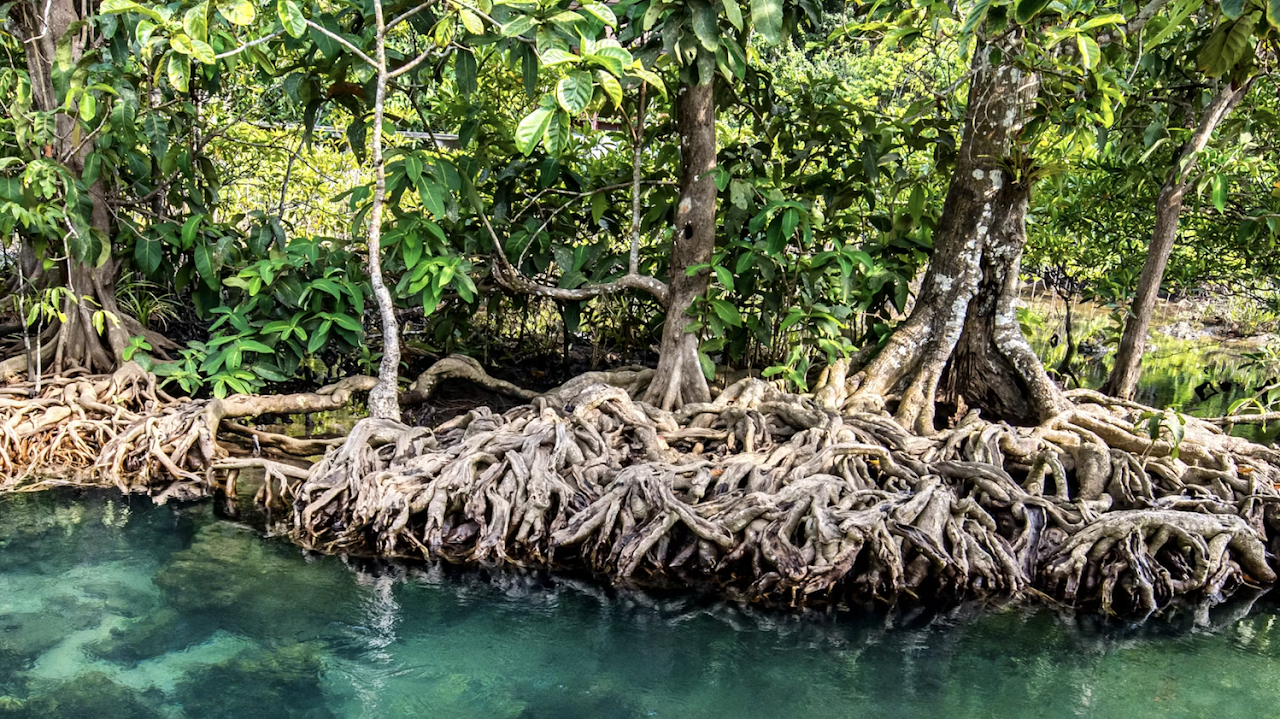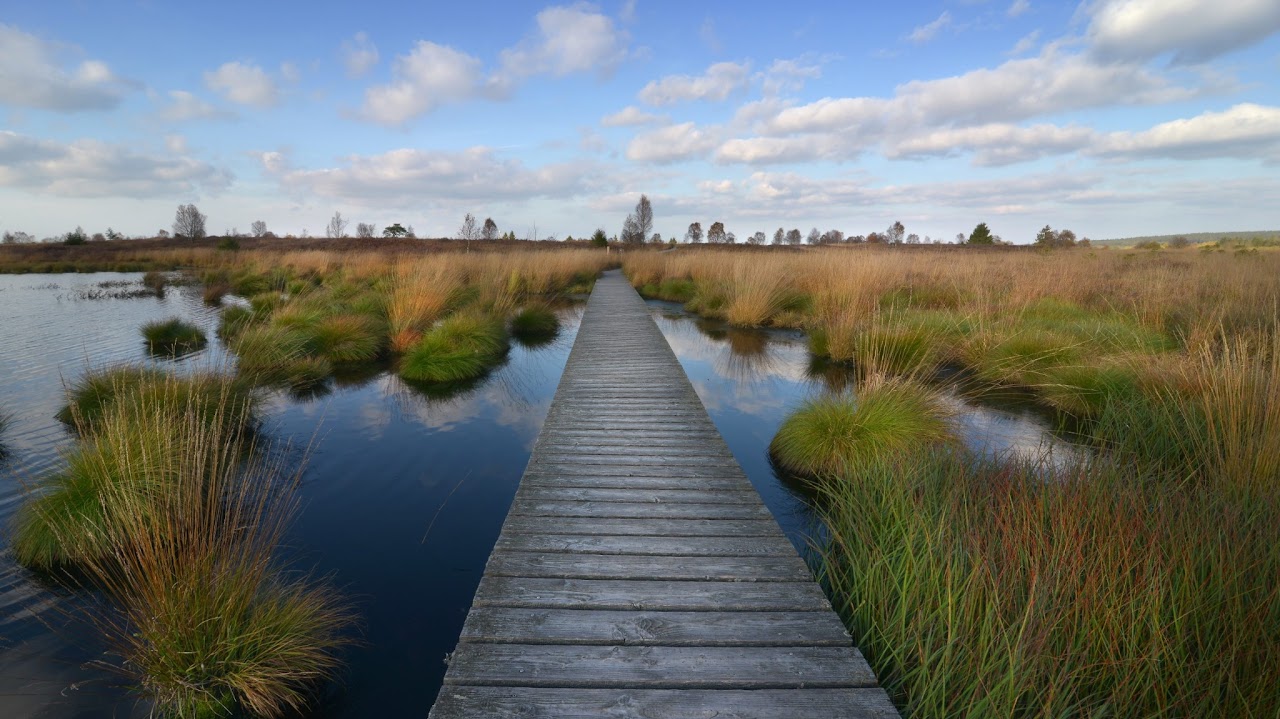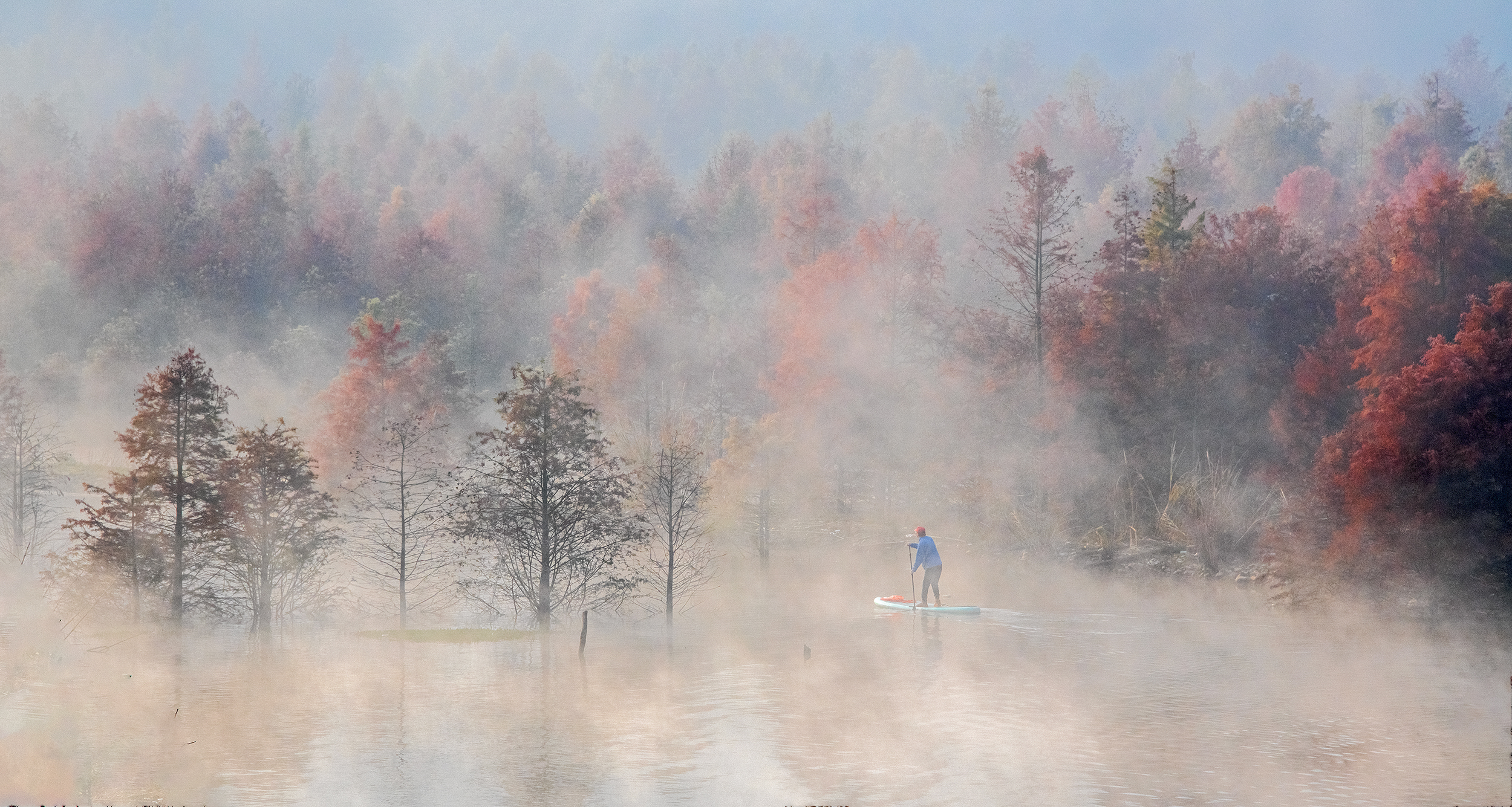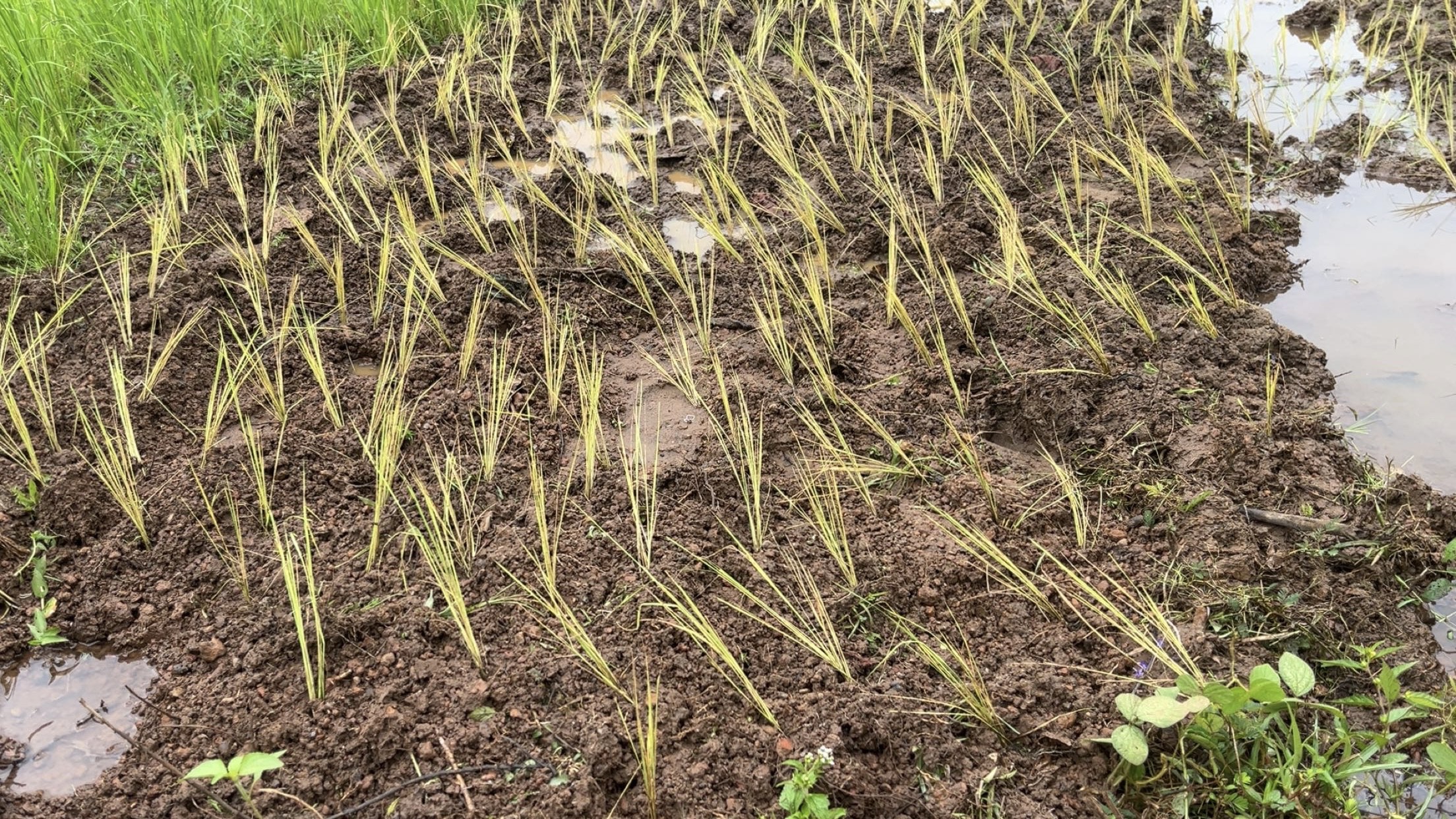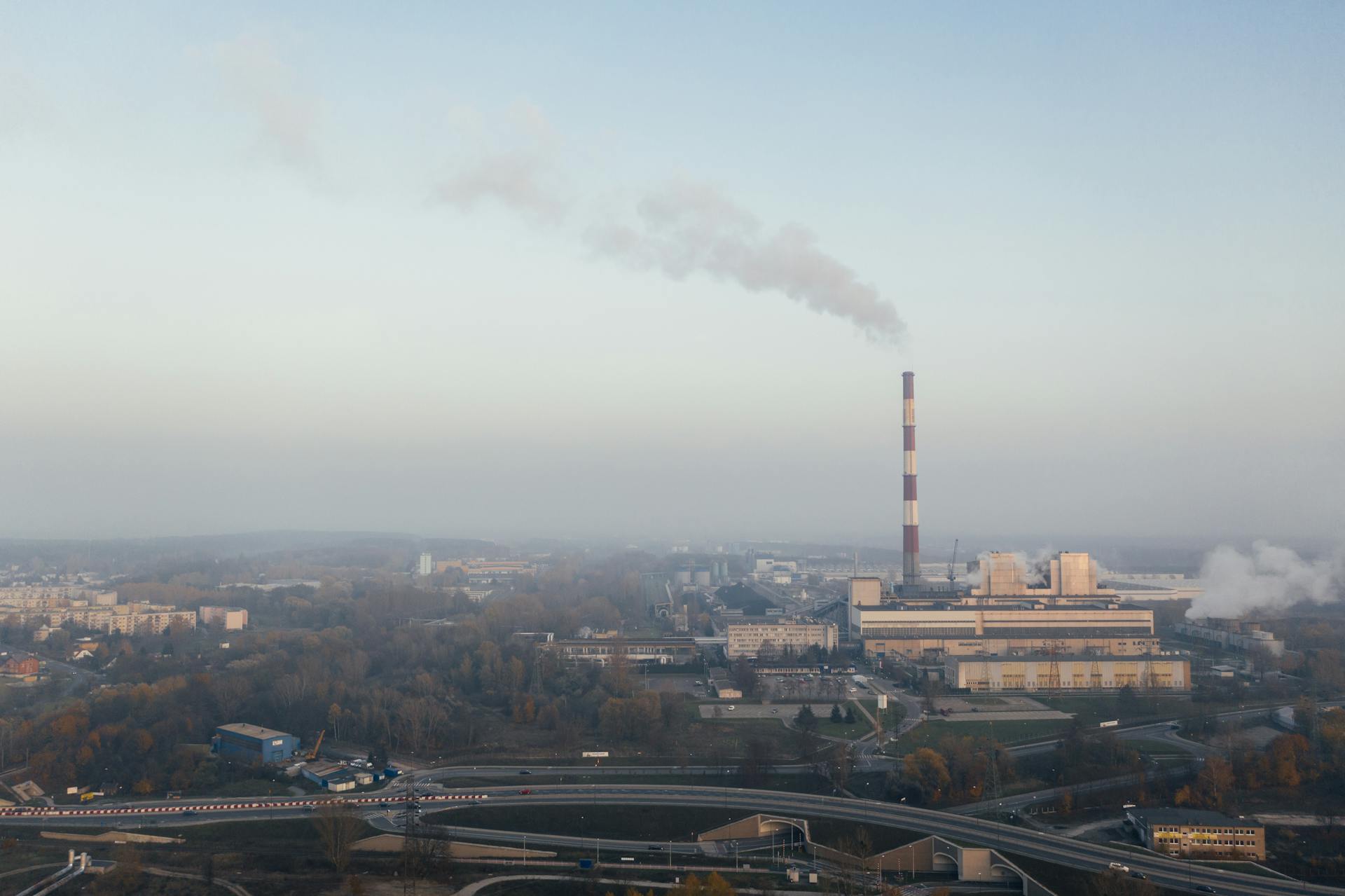VEDAC is Turning Trees into Art and Forests into Futures
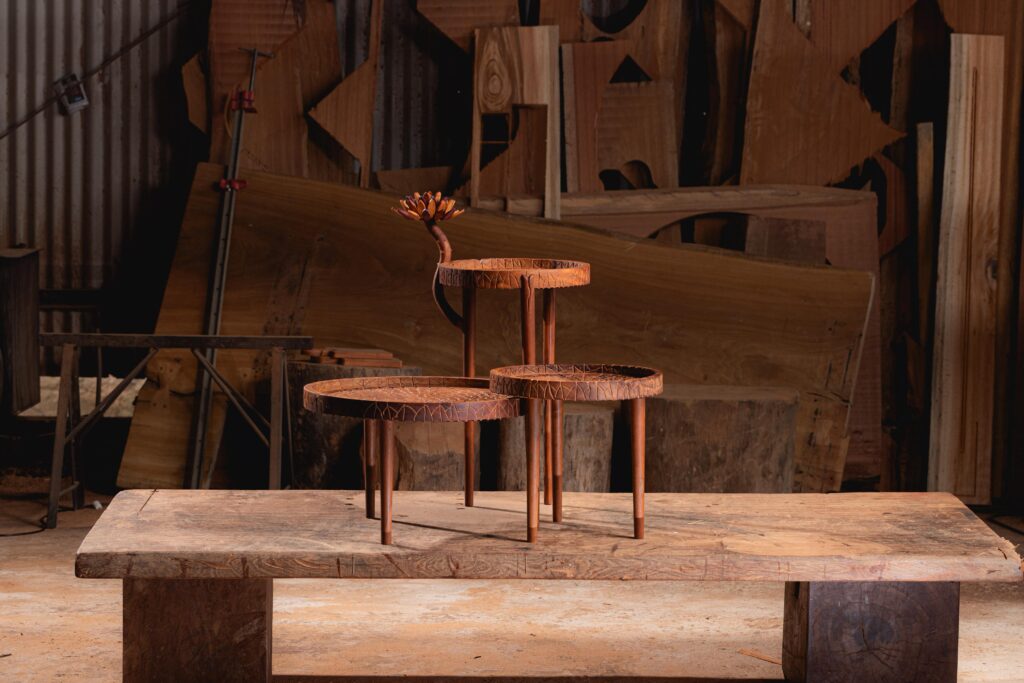
Photo credit: VEDAC
Deep in the Amazon, Jessica Dalmaso is proving that preservation and progress don’t have to be at odds. As founder of Vedac (Vestígios da Amazônia), she’s building a model of forest management that brings together sustainable development and community empowerment.

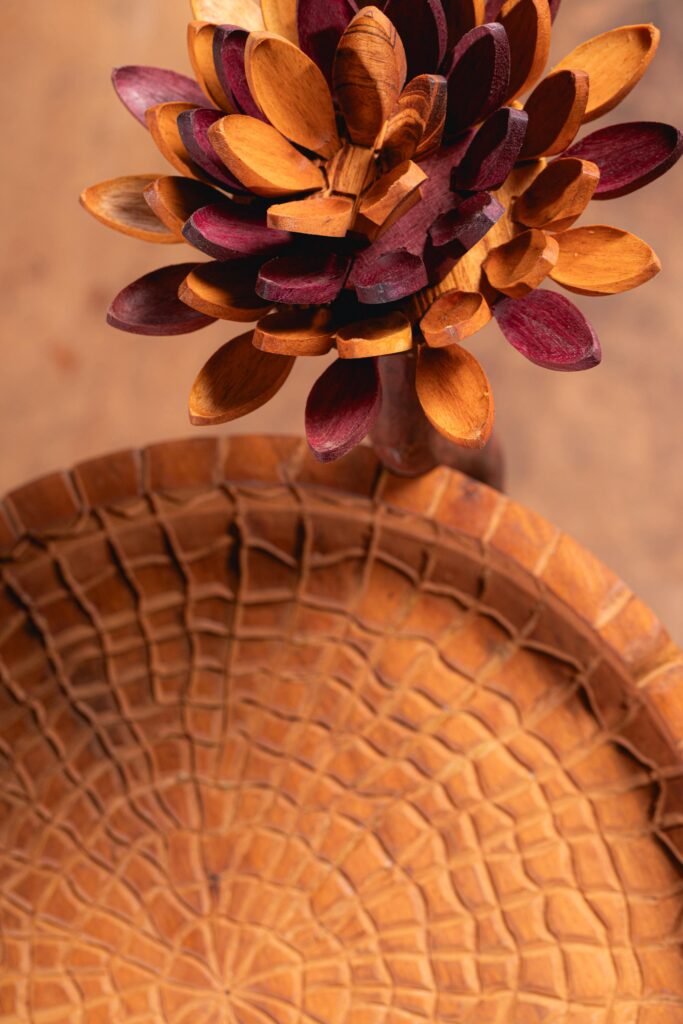
VEDAC Product: Vitoria Regia
A Voice for the Amazon at the heart of the Northeast region largest start up and innovation event
Jessica’s story took center stage during the G20 Global Land Initiative (GLI) session at NEON 2025 in Teresina, Piaui. She shared how she is building a model that generates income in some of Brazil’s most vulnerable regions, without cutting down the future.
“Six of the ten municipalities with the lowest Human Development Index (HDI) in Brazil are located deep in the forest, in the North,” she said at NEON 2025 in Teresina.
“How can we help these municipalities improve their HDI while keeping the forest standing? By using the forest in a sustainable way and bringing economic opportunities to these regions. Beyond preserving the planet, it’s about enabling socio-economic development — a just and inclusive development,” she posed.
Jessica presented during the G20 GLI session titled, “Startups that Regenerate and Innovate: Leading the Restoration Economy.”
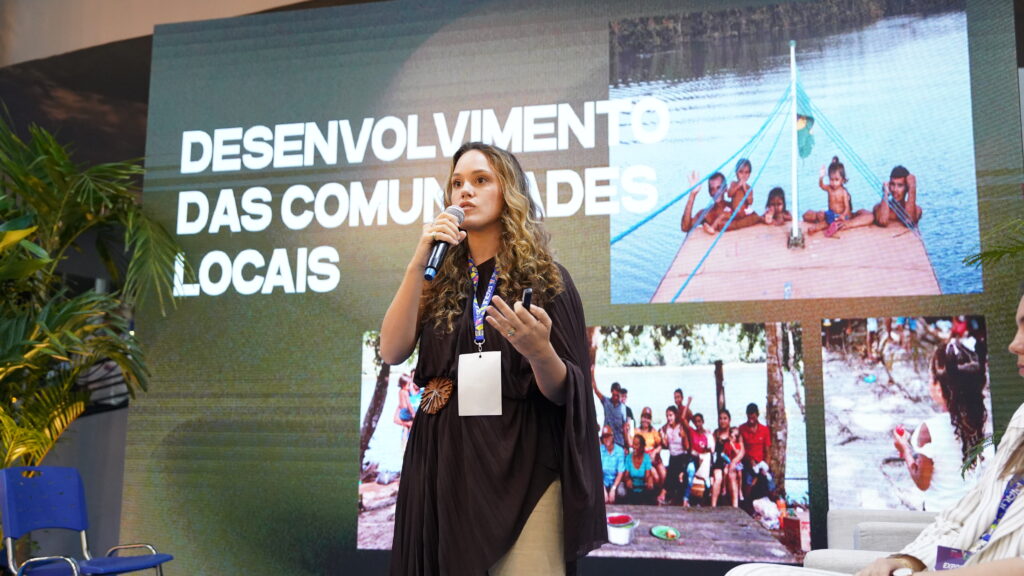
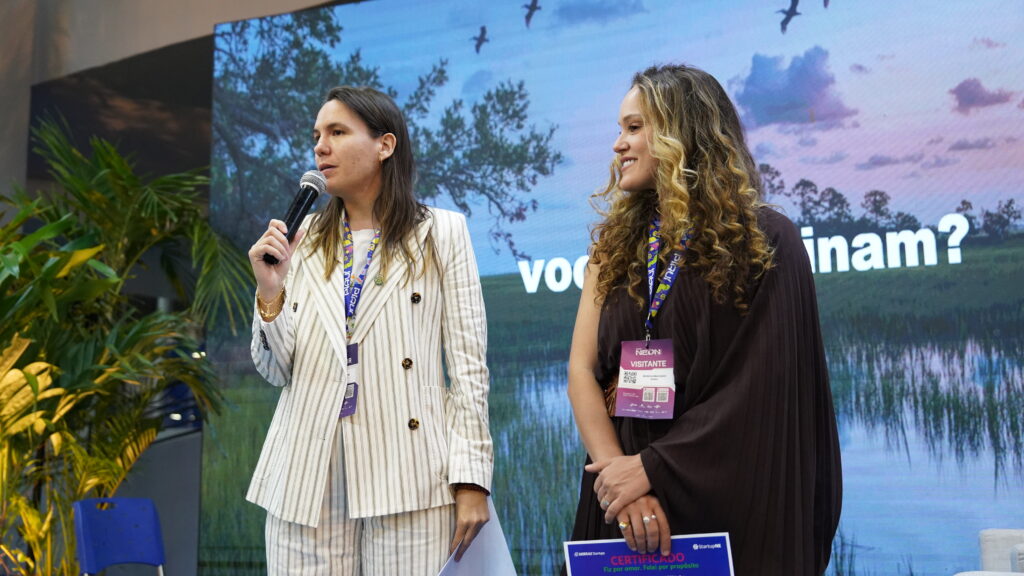
Jessica Dalmaso (left); Paula Padrino and Jessica Dalmaso (right) during the talk “Startups that Regenerate and Innovate: Leading the Restoration Economy”
Forest Management as a Tool for Inclusion
Jessica has worked with manejo florestal—the science of forest management—for over eight years. For the past four, she has run VEDAC. Her company works on public forest concessions, where the federal or state government (in this case, Pará) allocates areas of forest for sustainable use. The goal is not just economic. It’s also about enabling people to stay in the forest, creating attractive and safe options to work, earn a living, and care for the land.
“Forest management is a science. It’s taught in universities. You study the forest structure, understand the biodiversity, and work in a way that preserves it while using the wood responsibly,” Jessica said.
By working directly with forest communities, Jessica has seen first-hand how this model can shift lives.
In one project, she helped bring energy access to 69 families, by using income generated through forest management. The project installed solar panels in the community, and increased the dignity and safety for the beneficiary families.
Crafting Design with Purpose
VEDAC transforms harvested Amazonian wood into high-end design pieces—from furniture to architectural elements. Each item carries the identity of the forest it came from.
What sets VEDAC apart from other companies, is its commitment to transparency. Each piece comes with a QR code that allows customers to trace the source of the wood. It shows exactly where it came from, how it was managed and by whom. This is a powerful way to connect the final product to the forest, reinforcing the value of responsible sourcing and community stewardship.
But these are not just products; they are also stories. Every table, chair, or panel carries a narrative of sustainable forest management, of traditional knowledge meeting contemporary design. VEDAC partners with local artisans and designers to create pieces that appeal to both national and international markets, while staying rooted in Amazonian culture.
In a sector where sustainability is often seen as a trade-off with aesthetics or scalability, VEDAC proves otherwise: good design can regenerate, not deplete.
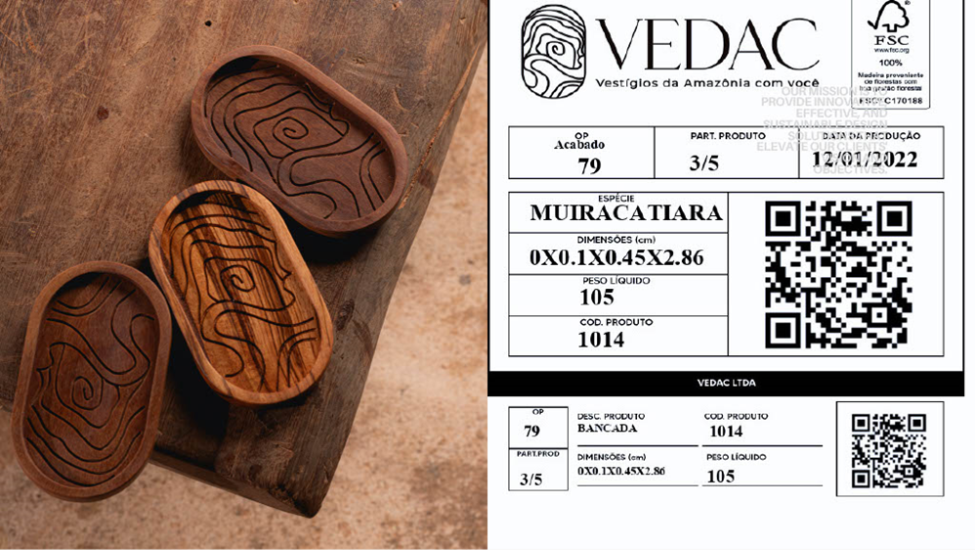
VEDAC Products and use of QR codes tracing the origins of the wood.
G20 GLI in Brazil: Scaling Up the Restoration Economy
The panel session organized by G20 GLI marks the start of our Initiative’s national engagement with the start-up community in Brazil.
The G20 GLI is planning to work with local accelerators, innovation hubs and public institutions to support hundreds of ecopreneurs such as Jessica, who are using the land sustainably.
Brazil’s significance is clear. Home to six unique biomes and with over 22 million hectares committed for restoration by 2030, it is both ecologically critical and economically fertile ground for start-ups such as Vedac.
By mapping and strengthening Brazil’s land restoration startup landscape, GLI is supporting the ecosystem to help ventures to scale and thrive.
The goal is to restore land, tackle inequality, and build an economy that serves both people and the planet.

VEDAC Product: Vitoria Regia

